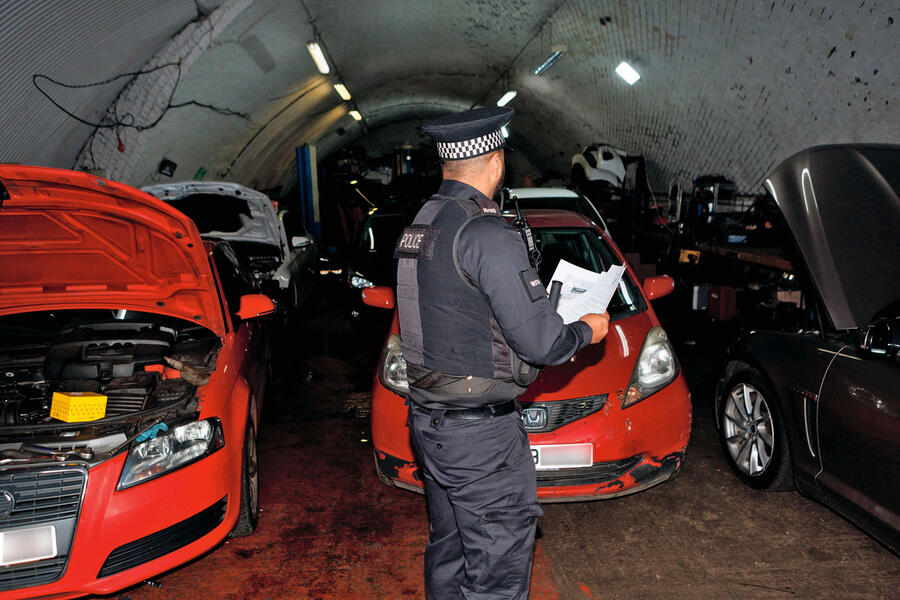“In terms of countering electronic compromise, it’s a step in the right direction, but it won’t resolve the issue of keyless thefts,” he said. “The support we get from the police in tracing stolen cars is magnificent and is why we have a 95% recovery rate. However, I believe there are elements in the judicial system who believe car theft is a victimless crime and that insurers will settle. They may think this way when sentencing.
“Bringing a car crime offender to justice and knowing full well that at court the sentence won’t reflect the time and effort [used on] bringing them to justice is challenging for the police when their resources are stretched.”
Wain added that while finding the ‘chop shops’ where stolen cars are broken for parts can look like a victory, their discovery is just the tip of an iceberg.
He said: “Chop shops are appearing up and down the country. However, very often the people arrested at the scene are not the orchestrators of the theft or operation. Instead, those people are often overseas. The people in the chop shop are just being paid to steal cars and break them up. So even if they’re pursued through the courts, you’re missing the top end of the organised crime group.
“Investigating those people uses resources that could be used elsewhere on the thin blue line. It’s very difficult.”









